What's the story? 100 years of the BBC in Scotland
- Published
The BBC is celebrating 100 years in Scotland, with the anniversary of the first broadcast from Glasgow on 6 March 1923.
Here we look at some the events from the past 100 years in 10 photos.
5SC Calling
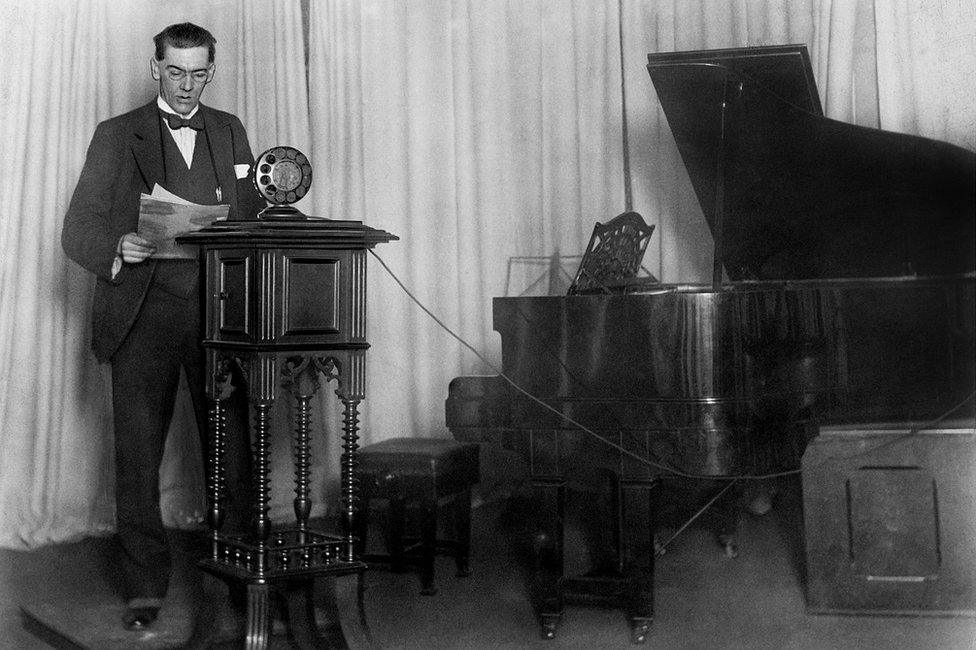
Herbert Carruthers, director of the BBC's first radio station in Scotland
This is Herbert Carruthers, director of the BBC's first radio station in Scotland, speaking into the microphone.
At 7pm on Tuesday 6 March 1923 listeners heard the skirl of "Hey! Johnnie Cope" on the bagpipes, after which John Reith, the general manager of the British Broadcasting Company, bent towards the microphone and announced that "5SC, the Glasgow station of the BBC, is calling".
The walls were draped with curtains to eliminate echoes and the grand piano was used extensively in the early broadcasts.
War Correspondent
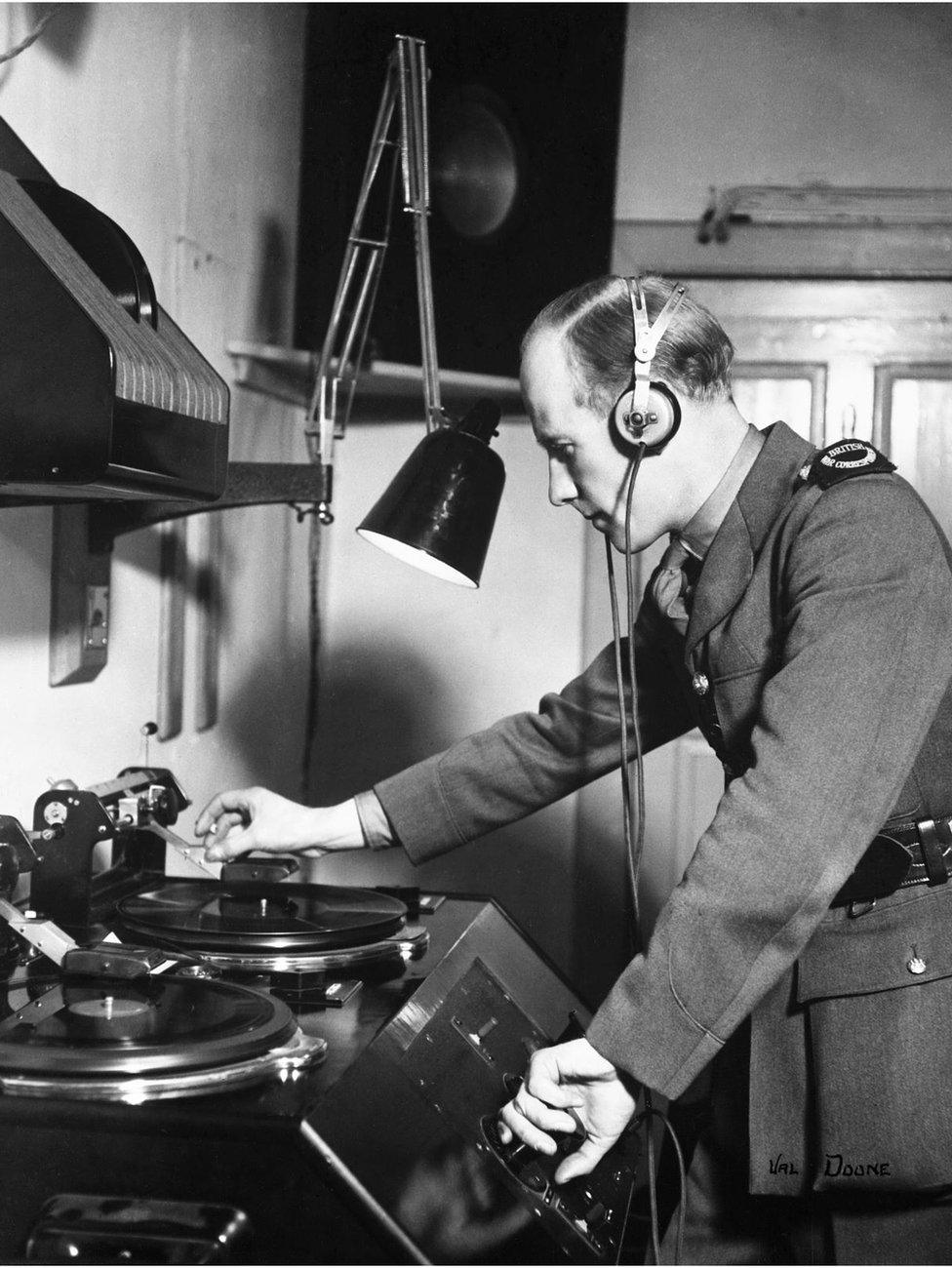
Robert Dunnett was the BBC's first officially accredited War Correspondent in Scotland.

Robert Dunnett was the BBC's first officially accredited War Correspondent in Scotland.
Originally from Cockburnspath in the Scottish Borders, he reported on the first Nazi attacks on Scotland during the early weeks of the Second World War.
He later became the BBC's observer with the British First Army in North Africa and was the first British radio reporter to cross the German border in September 1944.
Tartan and Heather
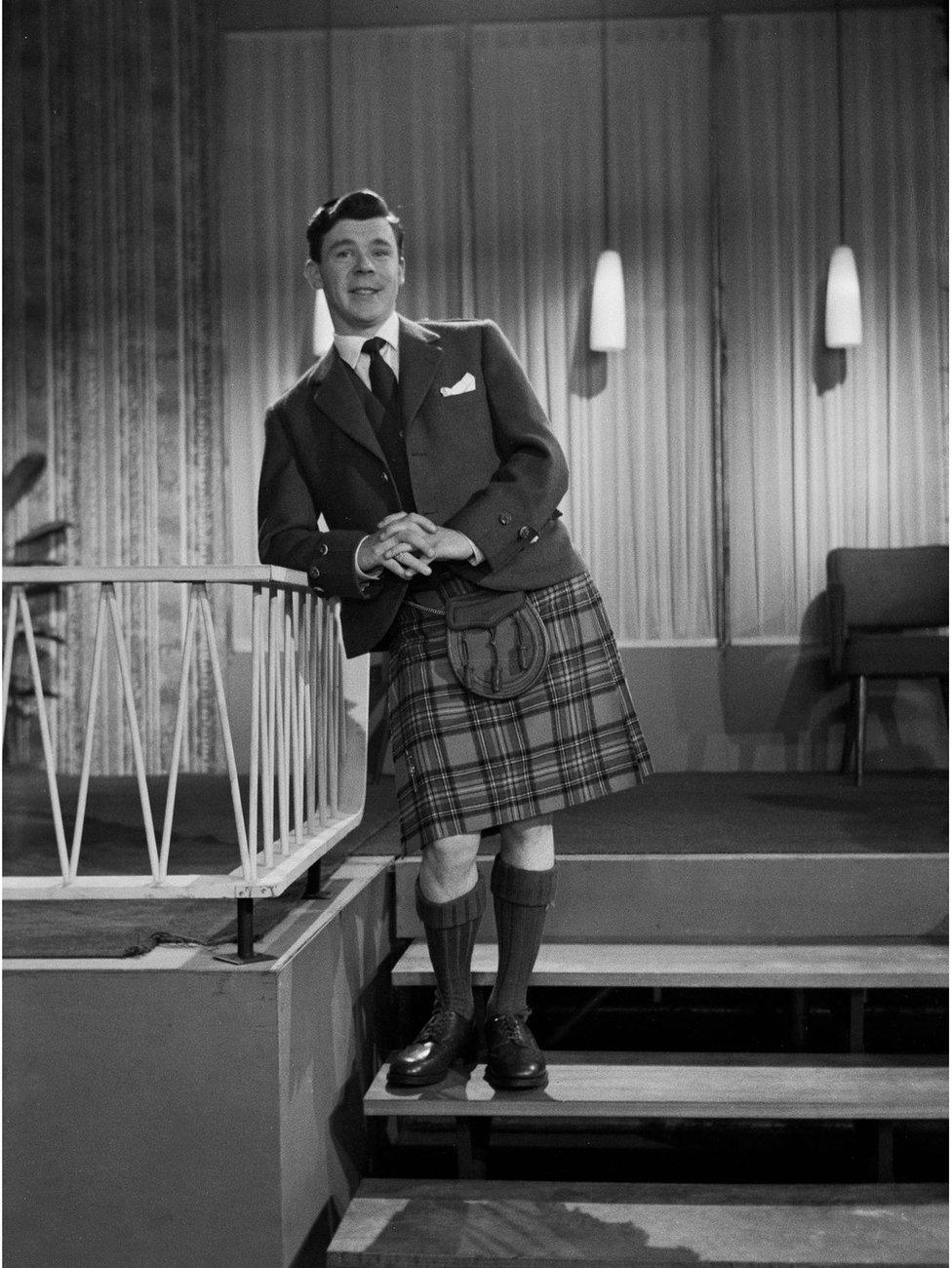
Andy Stewart was host of the hugely popular "White Heather Club"

Andy Stewart was host of the hugely popular "White Heather Club" (1958-67), which became a byword for tartan kitsch in the 1960s, with its traditional Scottish songs and country dancing.
Critics derided what they regarded as the parochialism of it all but at its peak the series would pull in 10 million viewers from across the UK.
'I'll tell you this boy!'
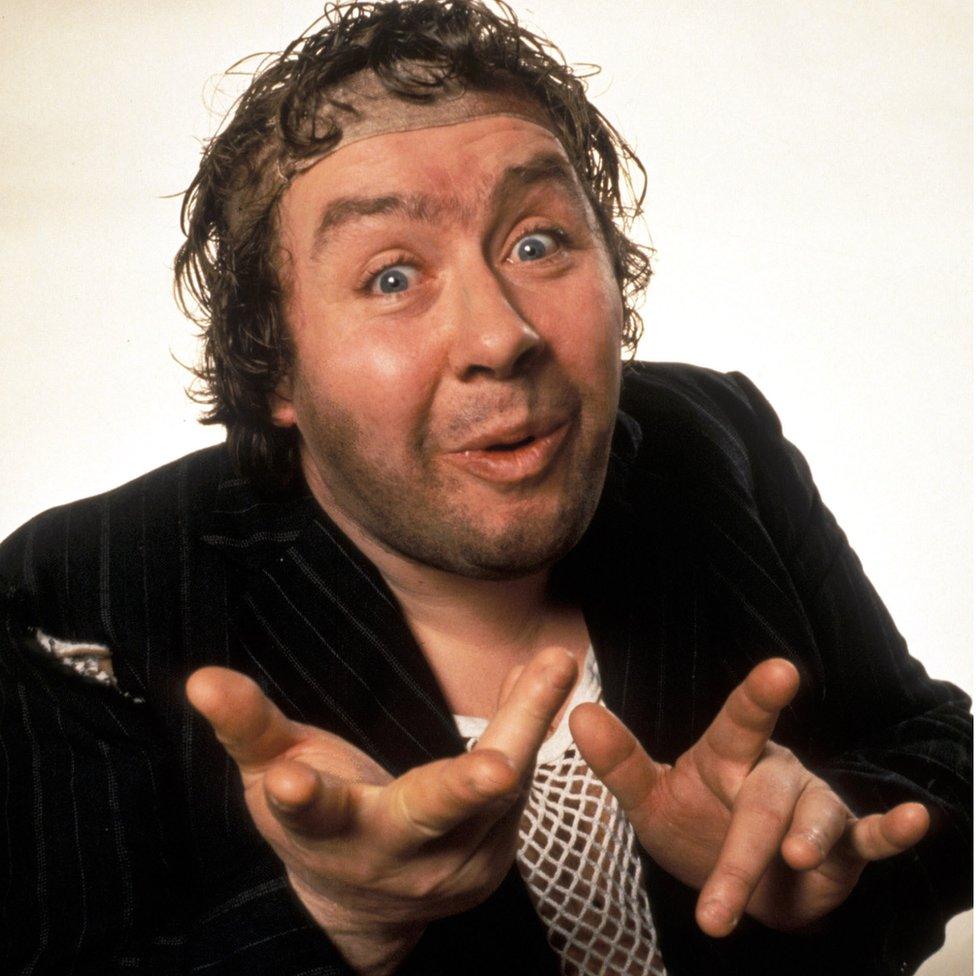
Rab C. Nesbitt was played by Gregor Fisher
From Stanley Baxter in the 1960s to Still Game in more recent years, the BBC has made a huge contribution to Scottish comedy.
But perhaps the most infamous was the Govan philosopher, "Rab C. Nesbitt" (1990-1999), played by Gregor Fisher.
Alan Yentob, the then controller of BBC2, ignored colleagues in London who thought the strong Glaswegian accent was unintelligible and rejected the idea of subtitles being added for an English audience.
'Woof!'
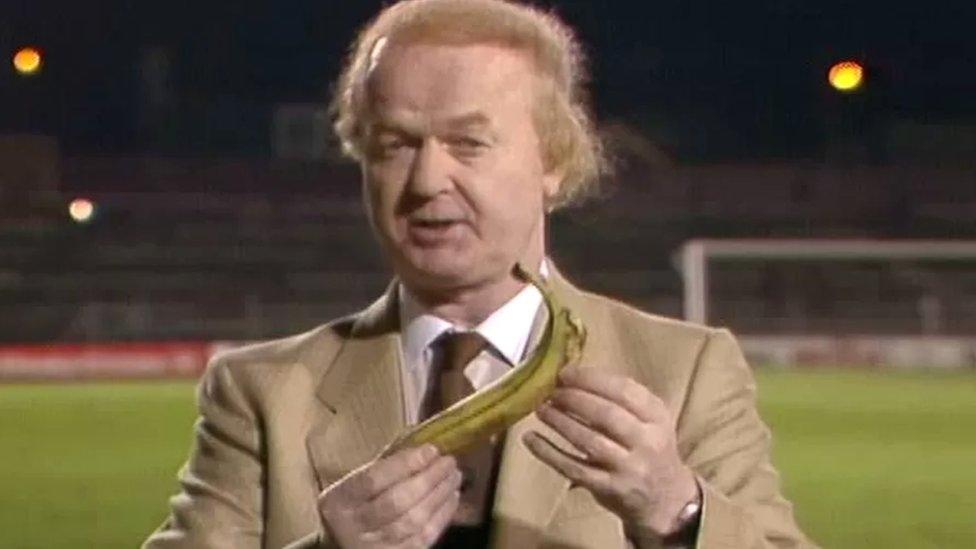
Archie Macpherson with one of the bananas thrown at Rangers player Mark Walters
The comb over, the jackets, the catchphrases - Archie Macpherson had it all.
As presenter and commentator on "Sportscene" in the 1970s and 80s, the former school headmaster was the face of BBC sport in Scotland for years.
He interviewed all the 'hard men' of Scottish football, including Jock Wallace, Willie Waddell, Jock Stein and Alex Ferguson.
Appalled by the sectarianism of Scottish football, he memorably held a banana which had been thrown at Rangers player Mark Walkers in 1987.
Rock 'n' Roll Drama
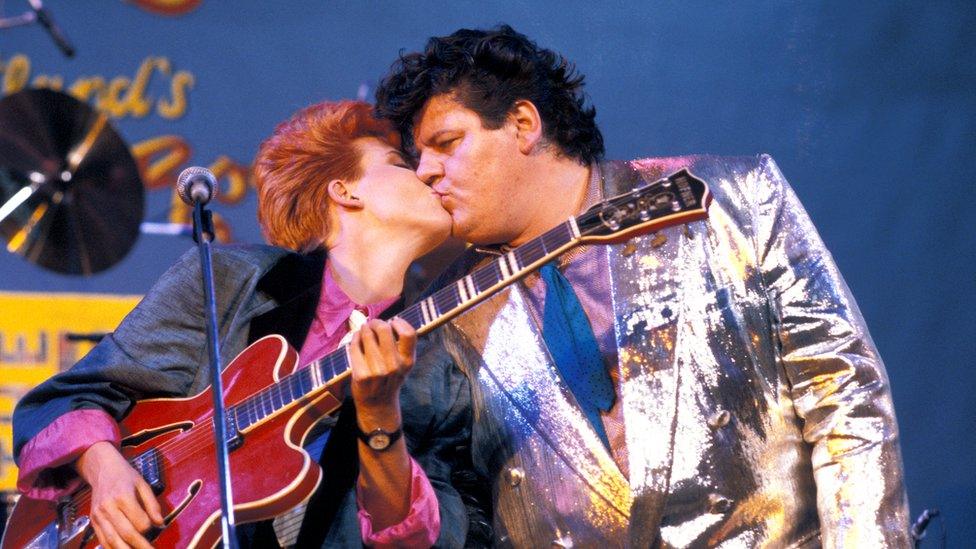
Robbie Coltrane and Emma Thomson in Tutti Frutti
Robbie Coltrane and Emma Thomson in John Byrne's "Tutti Frutti" (1987) epitomised a golden era of Scottish television drama in the 1980s.
Escaping the hackneyed themes of Scottish rural life, Highland battles, and Glasgow gangland culture, the six-part series told the story of The Majestics, a legendary Scots rock 'n' roll band, and their efforts to stage a 'silver jubilee' tour after the death of their lead singer.
Reporting Scotland
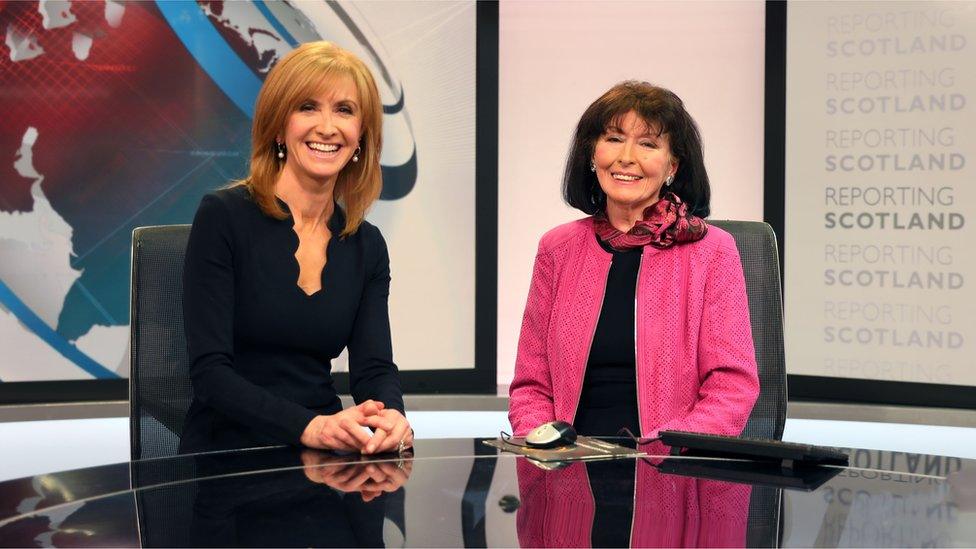
Jackie Bird and Mary Marquis, two of the longest-serving presenters of Scottish news programmes
From the discovery of North Sea Oil, the cloning of Dolly the Sheep, and the legalisation of gay marriage, to the disasters of Piper Alpha, Lockerbie and Dunblane, presenters Mary Marquis (1963-1998) and Jackie Bird (1989-2019) covered them all as the main presenters of the BBC's "Reporting Scotland" programmes.
What's the story?
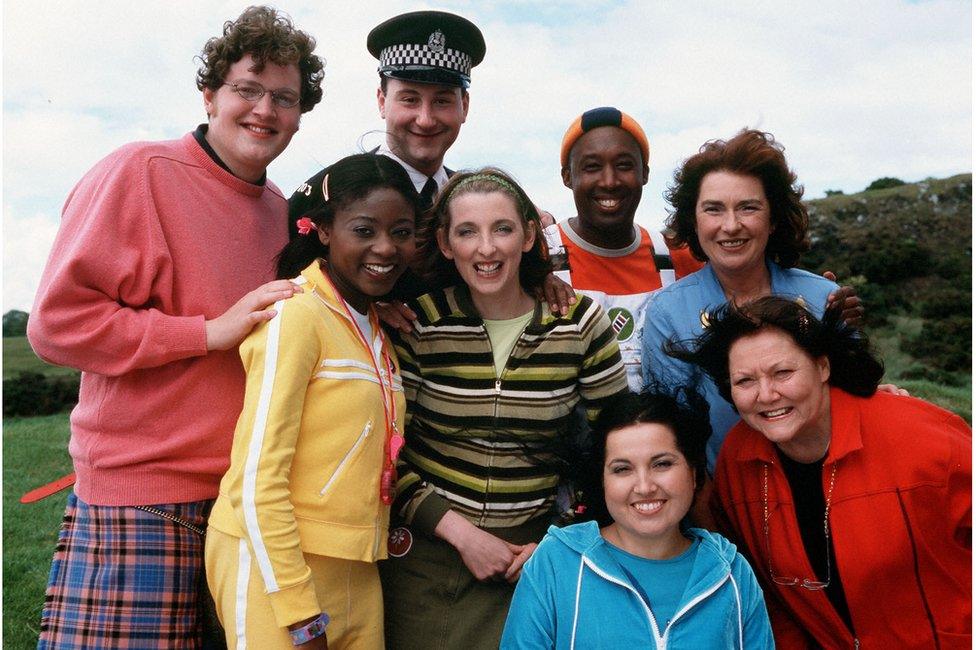
Balamory captured the hearts of a generation of children
A generation of children were enthralled by "Balamory" (2002-2005), the fictional small island community off the west coast of Scotland.
Filmed mostly in Tobermory on the Isle of Mull, it featured the tales of Miss Hoolie, Archie, Josie Jump, Edie McCredie, PC Plum, Spencer, Suzie Sweet and Penny Pocket.
The Scottish family
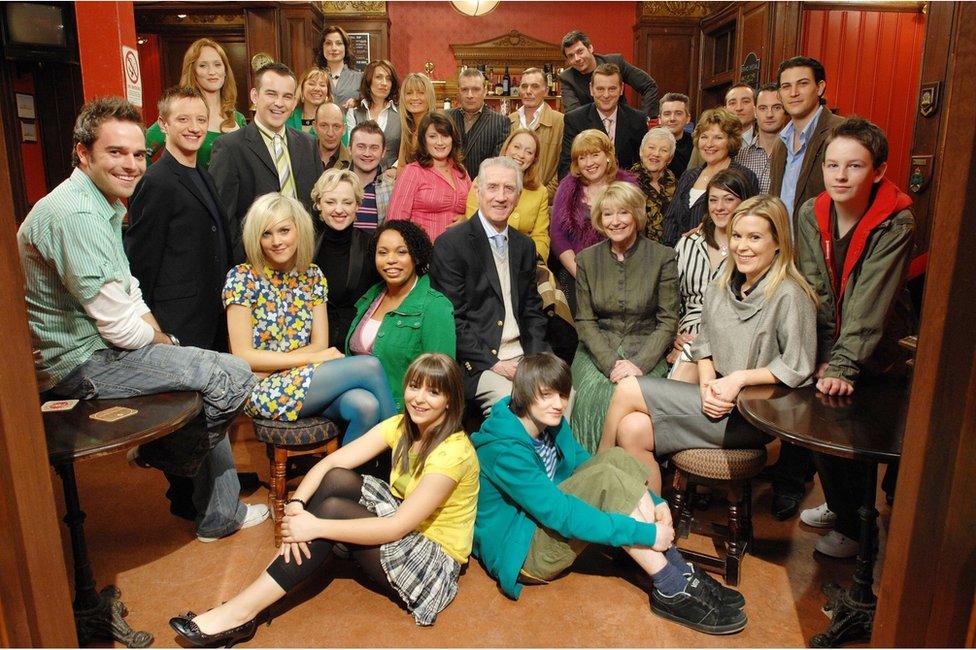
River City launched in 2002
From the legendary radio series, "The McFlannels", in the immediate post-war years, to its modern-equivalent "Two Doors Down" on network television, the BBC has portrayed family life with a trademark Scottish humour.
The launch of River City in 2002 not only brought a homegrown soap opera to our screens; it helped establish a permanent base for drama in Scotland, allowing actors, producers and technicians to make their home here without having to move to London.
New channels and services

The Nine presenters and reporters in 2019
The BBC in Scotland has grown from a single studio in a Glasgow city centre attic to plethora of services covering the nation, both in English and Gaelic.
Radio Scotland became a full-service in 1978, and in television, the BBC Scotland channel launched in 2019.
At the heart of the new TV channel is The Nine, which realised the decades-long demand for an integrated bulletin of international, UK and Scottish news - from a Scottish perspective.
The corporation has also played a central role in the renaissance of the Gaelic language: Radio nan Gàidheal opening in 1985, and BBC Alba following on television in 2008.
The BBC was an early player in the online era with the launch in 1999 of the BBC Scotland news website. And in recent years, Scottish audiences have increasingly moved to apps such as BBC iPlayer and BBC Sounds.
- Published12 February 2019
